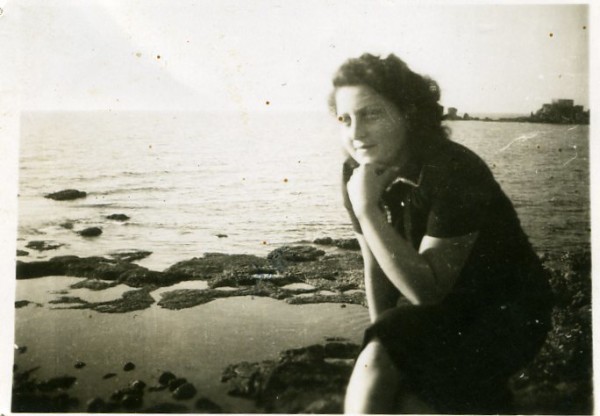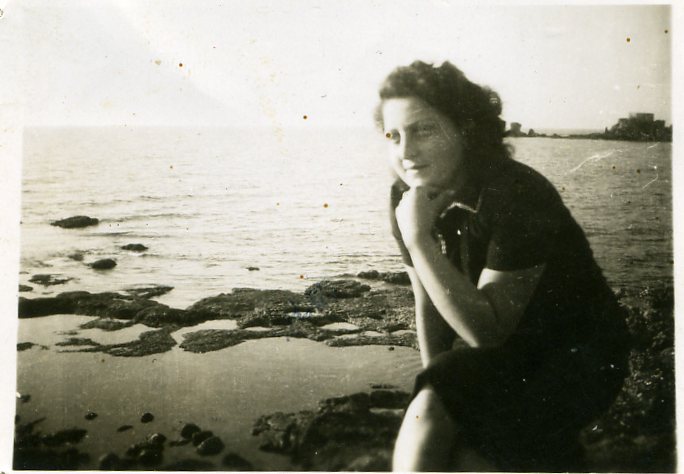
Today is International Women’s Day, a global simcha that began as International Working Women’s Day in 1909, spawning from the Socialist Party as a way of acknowledging the world-changing contributions women have made to society. Eishet chayil, or “woman of valor,” is my kavanah for International Women’s Day.
While we rejoice in the women who have made it into the history books, there are also many amazing women of valor everyday who make a difference in our lives, from the women in our lives our mothers, grandmothers, and aunts to women we don’t know personally but who have been inspirations to us in many other ways. As a secular Zionist myself, the women of Israel have always inspired me. From historical women who shaped the country to the those working in Israel on a day-to-day basis improving the quality of life for so many in the country, here are the women who inspire me from the country that inspires me — for example, I was inspired by this Hadassah story on Israeli nurse Ronit Meidan.
Meidan originally made aliyah from France as a young girl through the Youth Aliyah program, which rescued Jewish children from the Third Reich, and lived in the Goldstein Youth Village funded by Hadassah. She’s now improving quality of life as a head nurse in the pain relief unit at a hospital run by the same organization shaped her journey: Hadassah Hospital-Ein Kerem.
“My job is to reduce human suffering,” Meidan told Hadassah.
Her work improves the quality of life for Palestinians, Israelis, Jews, and Muslims; for the victims of terrorist attacks, and sometimes even the terrorists. As a nurse in Israel, she is often in the midst of trauma.
“When I’m outside the door,” she said, “I have to overcome my feelings, but the minute I walk in, I see a woman in pain — a mother — who needs me. She’s a patient like any other.”
Meidan offers light in the midst of a storm, playing an essential role in Israel’s day-to-day as well as her role in the co-existence of Israelis and Palestinians, working with Muslim and Jewish medical team members to heal Israel and combat terrorism. Meidan and the rest of the medical team at Hadassah hospital work to save and rejuvenate the tikkun of this world by easing suffering — and that’s something we can all find inspirational on International Women’s Day.
Another woman who inspires me is Yona Wallach, who is seen in Israel as one of the most important poets of the 1960s and 70s. She was essential in shaping modern Hebrew poetry. She also set her poetry to music, becoming a staple on the Israeli rock scene. Much like Sonia Sanchez in the Black Arts Movement, Wallach was a woman surrounded by men. Wallach was one of the first poets to use spoken word and freeform poetry in the country. She died of breast cancer in 1985, but her memory still lives on in her words of poetic justice: In 2014, Israeli film Yona was made about her life, and is currently making the rounds at Jewish film festivals.
As women, we must try to be the oracles of our own history. I have often admired one such woman: Hannah Szenes, a twenty-three-year-old kibbutznik who died in World War II while trying to save the lives of fellow Jews who were in danger of being deported to concentration camps. Part of what makes her such a powerful figure is that in the face of absolute horror, she kept writing poetry. Although she was captured and tortured, her spirit was able to fly free. As a journalist and writer, I am in awe of Szenes being able to write even in the midst of war: “My God, My God, may it never end / The sand and the sea / The rustle of the water / The lightning in the sky / The prayer of man.”
This universal prayer became “Eli, Eli,” and is a standard at Holocaust and military memorial ceremonies. While Szenes was Hungarian, she left for Mandatory Palestine after finishing high school, and the poem was inspired by the wonders of Palestine.
Maya Angelou once wrote, “Everything in the universe has a rhythm, everything dances.” The work and memory of these women of valor continues to contribute to the beat and everyday existence of Israel.
Michele Amira is a student at the University of Maryland.

